Platos Socrates
on Socrates
Platos Socrates
on Socrates
Socratic Self-Disclosure and the
Public Practice of Philosophy
Anne-Marie Schultz
LEXINGTON BOOKS
Lanham Boulder New York London
Published by Lexington Books
An imprint of The Rowman & Littlefield Publishing Group, Inc.
4501 Forbes Boulevard, Suite 200, Lanham, Maryland 20706
www.rowman.com
6 Tinworth Street, London SE11 5AL
Copyright 2020 by The Rowman & Littlefield Publishing Group, Inc.
All rights reserved. No part of this book may be reproduced in any form or by any electronic or mechanical means, including information storage and retrieval systems, without written permission from the publisher, except by a reviewer who may quote passages in a review.
British Library Cataloguing in Publication Information Available
Library of Congress Control Number: 2020933373
Library of Congress Cataloging-in-Publication Data Is Available
ISBN 978-1-4985-9964-1 (cloth: alk. paper)
ISBN 978-1-4985-9965-8 (electronic)
 TM The paper used in this publication meets the minimum requirements of American National Standard for Information Sciences Permanence of Paper for Printed Library Materials, ANSI/NISO Z39.48-1992.
TM The paper used in this publication meets the minimum requirements of American National Standard for Information Sciences Permanence of Paper for Printed Library Materials, ANSI/NISO Z39.48-1992.
Acknowledgments
In a book about the Socratic practice of self-disclosure, it seems fitting to tell a bit of my own story. My interest in Platos use of narrative began over thirty years ago. I was an English major who wandered into a philosophy classroom because of a general education requirement. I liked philosophy enough to take another course. I loved Greek mythology as a child. The History of Ancient Greek Philosophy struck me as ideal. Midway through that semester, we read Platos Symposium. I was captivated by Diotimas vision of love. Almost simultaneously, the intricate narrative structure of the dialogue sparked a flame of desire in my English major mind. Many unanswered questions buzzed about in my head: Who were these crazy people who told us this story? Why did they love Socrates so much? Why did Plato include them in the tale? How did this bizarre opening shape our understanding of the beautiful itself? I was transfixed. Simply put, I fell in love with a dialogue about love. I fell in love with the philosophical content and the literary form of this special dialogue. These dual loves carried me to graduate school at The Pennsylvania State University where I wrote a dissertation on the narrative structure of the Symposium under the late Stanley Rosen.
As I began my teaching career, I imitated a rather standard conception of Socratic pedagogy. Much like Aristodemus imitated Socrates by going around barefoot, I embraced the Socratic method. The rigorous process of elenchus, of refutative questioning and answering, aims at drawing out the correct answers from the souls of the willing and unwilling participants in the process. However, the elenchus often left me feeling detached from my students. I wondered what my role as educator was beyond facilitating their understanding of ideas. I wondered where to situate myself in the story of philosophy that I was inviting the student to love. In my own way, I began to ask Hesiods query in the Theogony: But what is all this to me, the story of the oak and the boulder? (1968, 35). Reading bell hooks Teaching to Transgress when it was first published in 1994 started the revolution in my thinking about the kind of teacher I aspired to be. I was in the second year of my teaching career. I knew I wanted to be a teacher who educated for the practice of freedom (hooks 1994, 4). I began to examine my own practice. Why was I always positioning myself as the questioner? Why did I simply imitate Socrates? Why didnt I speak from my own experience and love of philosophy? I went back to the source: the Platonic dialogues. I started to look more carefully at everything Platos Socrates did when he attempted to engage his interlocutors. In addition to argumentative refutation, he cites Homer regularly. He makes countless jokes. He tells myths of the ascent of the soul to the place beyond being and the journey of the soul in the afterlife. I reflected again and again on his query in the Phaedrus where he wonders what kind of creature he is. He explains his interest in self-inquiry to Phaedrus, asking, Am I a beast more complicated and savage than Typhon, or am I a tamer, simpler animal with a share in a divine and gentle nature? (Phdr., 230a). After a while, I noticed that he told a lot of stories about himself, his philosophical practices, and what he learns from his teachers. His pedagogical methods involve autobiography and strategic self-disclosure as much as they depend on the elenchus, perhaps more so. As I explored these Socratic stories, I also started to share some of my own stories with my students. As a few semesters passed, the classroom dynamic shifted. My teaching became more conversational and egalitarian. I hope that, after reading this book, you will see Socrates in a new light and that you, like Socrates, will share your stories of philosophy with students and with the broader public as well. I also hope that we will all become better able to listen and learn from each other in the public sphere.
As always, I have a number of people to thank for their sustained support of my work. I enjoyed one semester of research leave at the start of writing of this book. I thank Dean Nordt and The College of Arts and Sciences at Baylor University for this generous support. The Baylor Philosophy Department and The Baylor Interdisciplinary Core, in addition to being filled with wonderful colleagues, also provided abundant travel support to conferences to present portions of this work. The Boston Area Colloquium in Ancient Philosophy, The Ancient Philosophy Society, The History of Philosophy Society, and The Southwestern Seminar in Continental Philosophy have all provided hospitable spaces and valuable interlocutors for early formulations of this project. Emma Bianchi, Sara Brill, Jessica Decker, Ryan Drake, Jill Gordon, Danielle Lane, Marina McCoy, Kris Mclain, Shannon Mussett, Mike Shaw, and Kristi Sweet have been particularly supportive over a long period of time. I am grateful to have so many philosophical friends! I am thankful for the current members of my writing group: Lenore Wright, Paul Carron, Mike Whitenton, and Jacque Mougou for their ongoing willingness to read and critique my work. Thank you for providing so much occasion for genuine laughter along with the serious play of exchanging ideas with each other. The undergraduate and graduate students in my ancient survey courses, Plato seminars, and reading groups at Baylor have been ready interlocutors as well. You are all why I do what I do. A special thanks goes to Sabrina Little. She is the best research assistant I have had the pleasure of working with in my twenty-five years at Baylor. Thanks again to Leslie Ballard for his excellent copyediting work. All of you played an important in role in bringing this book about Socratic storytelling to light.
My own story began, of course, with my parents, Andrea and Michael Frosolono. My sister, Christina Frosolono Sell, arrived in the world shortly after I did. It is difficult to imagine the story of my life without her love and support in it. My family now extends well beyond this nuclear beginning. My brother in law, Kelly Sell, along with Christina, deserves enormous thanks for providing a new home for my parents during a difficult chapter in their lives. As you will learn in chapter 5, my mother passed away when I was writing this book. We all miss her greatly. I would also like to thank my in-laws (Jon, Suzette, Marc, Kris, Madison, Caleb, and now Gracie) for welcoming me into the Schultz family. My husband, Jeff, Milo the golden retriever, and Dante the Rhodesian ridgeback infuse each day with love and joyful play. Dante was particularly helpful in keeping my writing space squirrel-free. Again, I dedicate this book to Jeffrey Randall Schultz. Thank you for being such a wonderful part of the story of my life.
Next page

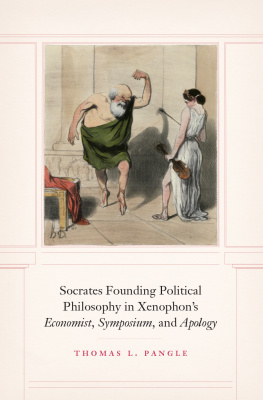
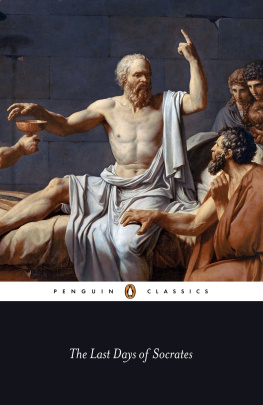
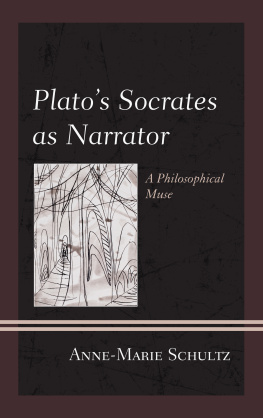
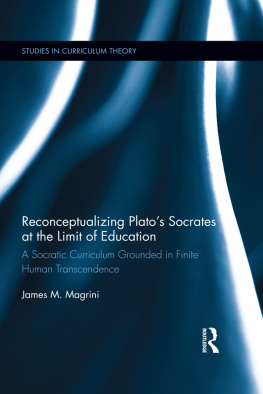
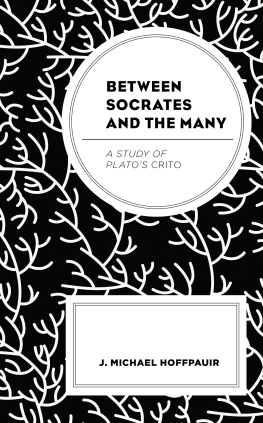
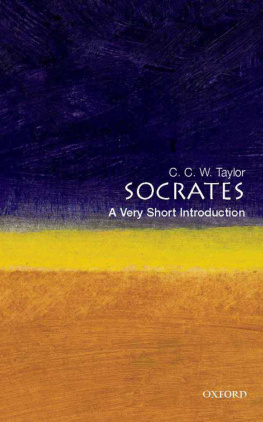
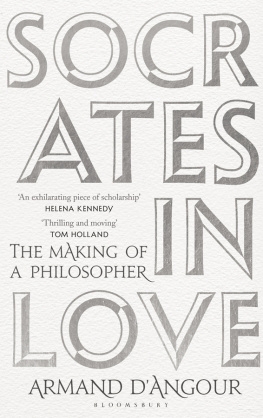
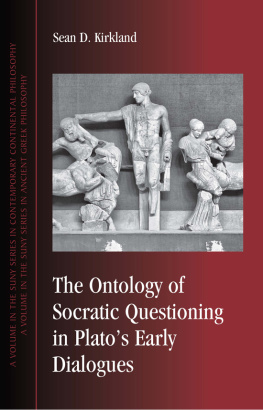
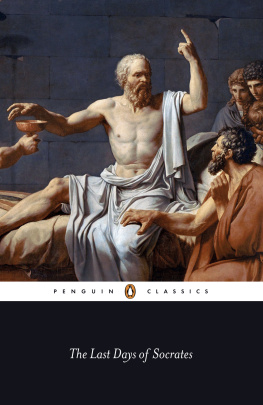
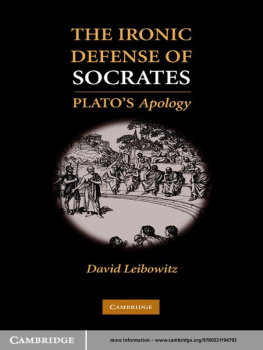
 TM The paper used in this publication meets the minimum requirements of American National Standard for Information Sciences Permanence of Paper for Printed Library Materials, ANSI/NISO Z39.48-1992.
TM The paper used in this publication meets the minimum requirements of American National Standard for Information Sciences Permanence of Paper for Printed Library Materials, ANSI/NISO Z39.48-1992.